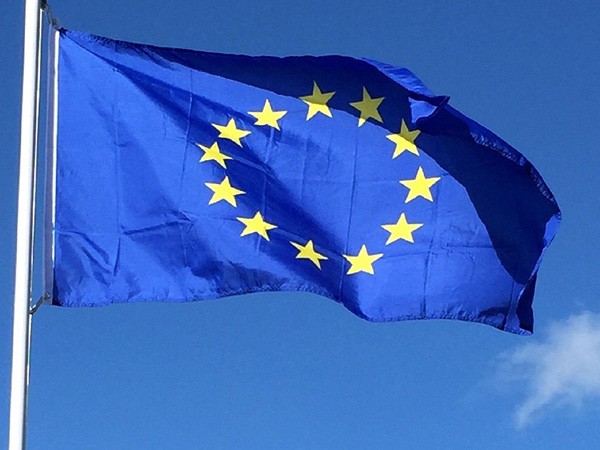Europe pivots towards Indo-Pacific amid row with China
Enticed for decades by China, which became the fulcrum of its Asia policy, continental Europe has finally broken ranks and pivoted towards the democracies of the Indo-Pacific, in its search for allies.

- Country:
- India
Enticed for decades by China, which became the fulcrum of its Asia policy, continental Europe has finally broken ranks and pivoted towards the democracies of the Indo-Pacific, in its search for allies. Europe's geopolitical realignment has been led by its two proven heavyweights -- Germany and France. On September 2, German Foreign Minister Heiko Maas announced his country's rotation in the direction of Indo-Pacific, which comprises countries on either side of the Malacca straits, through which more than 150 ships transit every day and links the Indian and Pacific Oceans. The tropical waterway is flanked by Malaysia and Indonesia's island of Sumatra.
A 40-page policy guideline released on September 2, said Germany wants to "promote a European Indo-Pacific strategy" where it makes "an active contribution to shaping the international order in the Indo-Pacific." Germany would, therefore, not only pivot towards the Indo-Pacific alone, but would be engaged in spurring a pan-European strategic shift towards the region. The European powerhouse spotlighted that it "wants to work more intensively with the countries of the (Indo-Pacific) region, be it to strengthen the rule of law and human rights" and that the "security-policy sector plays a special role in this context." The emphasis on human rights is significant, as Germany has factored China's suppression of the ethnic Uyghur community in its policy shift.
"We want to help shape (the future global order) so that it is based on rules and international cooperation, not on the law of the strong," Maas said. The shift in Germany's geopolitical disposition comes at a time when fear of economic dependence on China, after the COVID-19 pandemic, is overriding Beijing's allure as a massive market for German goods and services.
In forging a realignment, Germany is following the footsteps of France which has already been weaving solid security partnerships in the Indo-Pacific, with India and Australia as the standout hubs. On September 9, top foreign ministry officials of India, France and Australia held their maiden video conference to discuss maritime security in the Indo-Pacific region. Topics included creating domain awareness of the Indo-Pacific waters, logistical support, and capacity building of other countries in the region, according to a media report. The trio was following up on the 2018 initiative of French President Emmanuel Macron.
In that year, the French head of state had energetically pushed the idea of an Indo-Pacific partnership with New Delhi, Paris and Canberra as the critical nodes, to counter China's assertiveness. During a visit to Australia in May 2018, before flying to India, Macron nailed the necessity for security collaboration among the three partners. "We are not naive: if we want to be seen and respected by China as an equal partner, we must organise ourselves," Macron said during a speech at an Australian naval base. "This new Paris-Delhi-Canberra axis is absolutely key for the region and our joint objectives in the Indian-Pacific region," he said, according to media reports.
A deeper partnership with India and Australia is energising France's already solid presence in the Indian Ocean. La Reunion and Mayotte in the Southwest Indian Ocean are French overseas territories. France's two inter-services bases in Djibouti and in the United Arab Emirates (UAE) nail France's strong military focus on the Northwest Indian Ocean. Germany's perceptible shift in position follows its realisation that the rising Indo-Pacific region is central to its sustained economic prosperity. In 2016, Germany, a major manufacturing superpower exported a massive USD 117 billion in merchandise, which passed through the contested waters of the South China Sea. Not surprisingly, Berlin has considered joining US warships, which have been periodically carrying out Freedom of Navigation Operations in the South China Sea.
"Our prosperity and our geopolitical influence in the coming decades will depend on how we work together with the countries of the Indo-Pacific region," Maas said during his address. "That, more than anywhere else, is where the shape of the international rules-based order of tomorrow will be decided. We want to help shape that order so that it is based on rules and international cooperation, not on the law of the strong," he added. With Germany now also focusing on the Indo-Pacific, a Paris-Bonn bonding is expected to locomotive Europe, yet again, towards the East. The Franco-German alliance, where France takes the lead in security and Germany does the economic heavy lifting, avoiding a security high profile for historical reasons, has been a prominent feature of the Paris-Bonn relationship after the Second World War.
It is expected that Germany's Indo-Pacific policy will be shaped by Germany's Gestaltungsmachte doctrine, which focuses on a deeper engagement of the "shaping powers" of the region, which includes India, Australia and Japan. With the European leg of the Indo-Pacific kicking in, it is possible to visualise a stronger European power profile along Africa's Indian Ocean coastline to energy choke points in the Gulf. If it can be linked with the stronger presence of the Indian Navy whose regional footprint is on the rise and further supplemented by the formidable naval presence of the United States in this zone, the basic elements of the brand new phalanx to counter China's push in the Indo-Pacific, including its western flank would have been firmly established. (ANI)
(This story has not been edited by Devdiscourse staff and is auto-generated from a syndicated feed.)
ALSO READ
Indian Navy hands over nine pirates to Mumbai Police
INSIGHT-Slavery tribunal? Africa, Caribbean unite on reparations
Soccer-Former South Africa junior international shot dead in hijacking
Delhi Police save lives of woman, her dog after fire engulfs house
Former South Africa speaker of parliament is arrested on bribery allegations and released on bail










